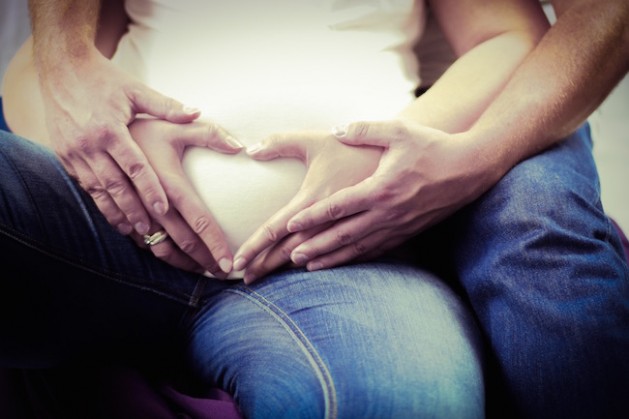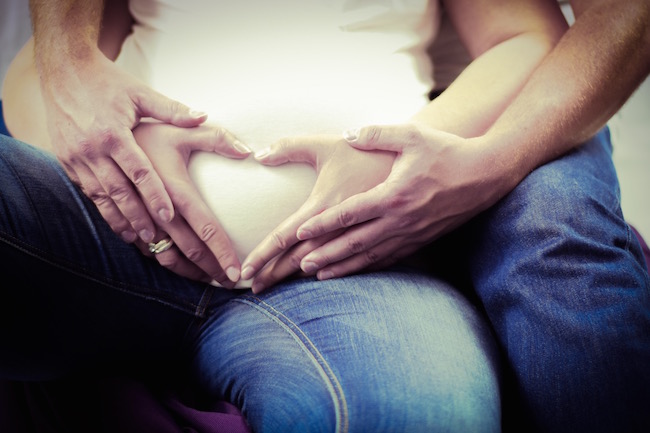
How many babies prenatally diagnosed with Down syndrome are aborted? While we don’t have the exact answer to this question, here are some shocking statistics that give us more than enough information to come to the conclusion that the majority of people have the wrong idea about Down syndrome. More specifically, these statistics show that the majority of people are completely unaware of the richness of life and the opportunity that people with Down syndrome have. In fact, people who have friends or family members with Down syndrome will share how greatly this has enriched their lives.
When non-pregnant people are asked if they would have a termination if their fetus tested positive for Down syndrome, 23-33% said yes. When high-risk pregnant women were asked the same question, 46-86% responded yes. Women who screened positive were also asked 89-97% said that they would terminate the fetus.
About 92% of pregnancies in Europe with a diagnosis of Down syndrome are terminated. In the United States, the termination rate is around 67%, but it varies greatly depending on the population evaluated.
New noninvasive prenatal screening (NIPS) technologies can identify cell-free DNA from the placenta as early as ten weeks into pregnancy. NIPS technologies claim to inform women if her baby has Down syndrome with 99% sensitivity and specificity. Many women use NIPS to terminate the baby’s life without getting the result confirmed by an invasive diagnostic test. So without certainty, they are ending the life of a potentially diagnosed child.
A recent study revealed that after women received a prenatal diagnosis and followed through with abortion, the population of people living with Down syndrome has decreased by 30% between 2006-2010 in the United States alone.
Women who responded “yes” when asked if they would abort if their results tested positive for Down syndrome, said the following:
- I have an image of how I want to interact with my child, and that’s not the kind of interaction I want, not the kind I could maintain.
- The bottom line is when my neighbor said to me: Having a ‘tard, that’s a bummer for life.
- If he can’t grow up to have a shot at becoming president, we don’t want him.
- It’s devastating, it’s a waste, all the love that goes into kids like that.
In comparison to these unnerving statistics, here are some positive ones. Doctors at Children’s Hospital in Boston conducted three surveys and discovered that the reality of Down syndrome is positive for the majority of parents, siblings, and people with Down syndrome themselves. Out of 2,044 parents or guardians surveyed, 79% stated that their outlook on life was more positive because of their child with Down syndrome.
Melissa has Down syndrome and has led a vibrantly successful life. Her parents were unsure of what to expect when they received the diagnosis that their child had Down syndrome. They had questions that many pregnant women at risk ask: Will my child be able to learn? Will he or she be able to go to school and be on his or her own?
Melissa is now a college student and national and international speaker. She is a Special Olympian who has brought home gold medals in skiing, cycling, and swimming. She has interned for a Massachusetts state senator, and she tutors Down syndrome pre-school students in math and reading. In response to the common questions and fears women initially have, not only will a child with Down syndrome learn, he or she will grow up to teach others locally, nationally, and even internationally. Not only will Down syndrome children go to school, but they will also excel at a variety of sports and compete professionally.
In addition to parents, siblings’ lives change drastically when they have a brother or sister with Down syndrome. A recent study polled children above the age of twelve who have a brother or sister with Down syndrome. The polls revealed that 97% expressed feelings of pride for their brother or sister, and 88% believed they were better people because of this sibling.
Of course, we also have to take into consideration the people who have Down syndrome themselves. Another study revealed the feelings of adults with Down syndrome. Among the adults surveyed, 99% said they were happy with their lives, 97% said they liked who they were, and 96% said they liked the way they looked. So to answer another commonly asked question: If my child has Down syndrome, will he or she live a happy life? The answer is undoubtedly “yes.” And not only will he or she live a happy life, but the child will cause your life to be far happier as well.
When comparing these numbers to people who don’t have Down syndrome, the differences are alarming. According to a recent Harris poll, only one in three Americans is happy. In 2011, a meager 33% of Americans said they were happy, and this number decreased from the previous 35% in 2008 and 2009. Only 67% of Americans stated that they were optimistic about the future. Women tend to suffer from self-esteem issues that can sway their happiness. The Choose Beautiful Campaign discovered that 96% of women wouldn’t use the word beautiful to describe themselves and 78% don’t feel confident in their own beauty. So in addition to being able to learn and participate in extracurricular activities like everyone else, Down syndrome children statistically grow up to be happier than those without Down syndrome.
We want to be clear that we believe every woman has a right to choose for herself whether she will have a child or not. We present this information so that women can have all of the facts on this subject before making such an important decision.
If you still aren’t convinced that babies with Down syndrome deserve the same chance at life as everyone else, just take a look at what people who have experienced Down syndrome first hand have to say:
- I am not any different from other people. Look at me. I can do all sorts of things you didn’t think I could. Don’t label us. People with Down syndrome do a lot of things.
- Down syndrome, it doesn’t mean I’m down. It means I help people who are feeling down. My smiles are contagious, my laugh is medicine for the heart, my hugs are heavenly, and my heart itself is pure gold.
- I may be different, but everyone is different in their own unique way. If I didn’t have this extra chromosome, I wouldn’t be me! I am thankful to have Down syndrome because I just want to make a difference in this world, I feel like I am!
These aren’t the voices of wasted lives.



